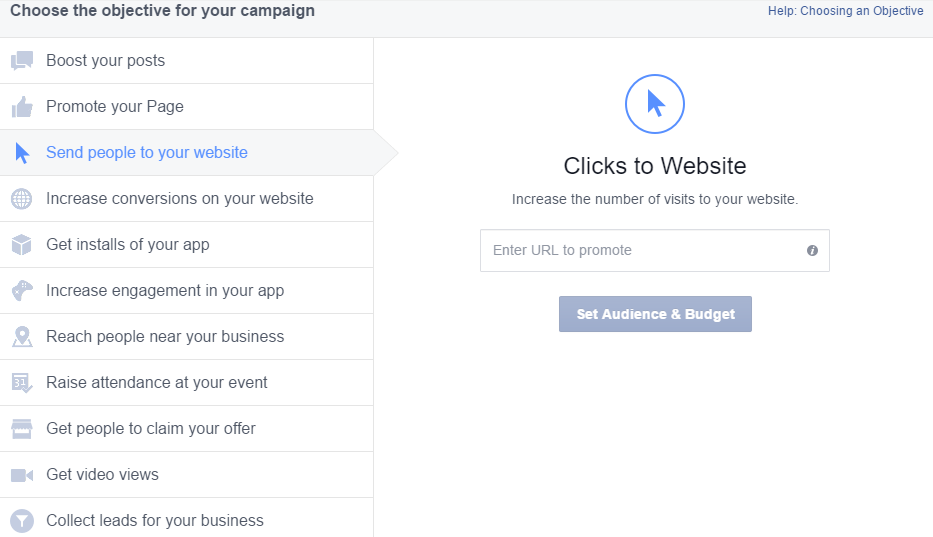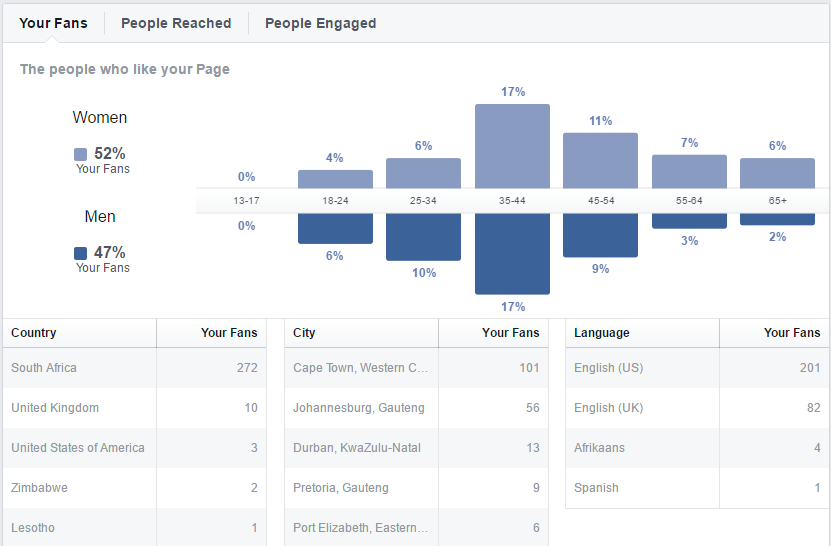If you’re a business you will most likely have a Facebook Business Page. Having a Page can be an extremely powerful way of connecting with your current customers and help you find new customers through your posts, videos or adverts, however in order to reap the potential benefits you need to run an effective Facebook Business Page.
In our previous blog we spoke about some of the mistakes many businesses are making on their Facebook Pages, in this blog we will speak about how to run your page effectively.
1. Why is your business on Facebook?
You have probably heard that you should be on Facebook in order to tap into the 1.4 billion users, and 13 million South African Facebook users, however without a definitive goal of why you are on the social network in the first place you are actually wasting your time.
As with anything in business, and life, you need to have goals. So ask yourself why are you on Facebook?
- Do you want to strengthen current customer relationships?
- Expose your brand to new people who may be interested?
- Get local awareness and drive people into your store?
- Drive traffic to your website?
- Gather insights into your customers or interested audience?
- Ask advice on new products or services?
There are many goals for being on Facebook, but no matter how many pictures or videos you post, or adverts you launch, without a definitive goal your business will not grow. It may sound arbitrary, but having a definite goal for being on Facebook will make all the difference as it will guide your posting and content strategy, it will help you make decisions for using the right types of Facebook advert tools and it will help you allocate the right budgets.
Key takeaways: You need to define the “why” of your Facebook page. You need to write down your goal and then formulate a strategy to achieve that goal. Without a goal you are wasting your time, your audience will not take the actions you need and you will lose business as a result, or you will waste valuable marketing budget on goals that don’t matter. Spend some time thinking about what you want and then take action.

The various options available for Facebook Advertising
2. Who are you selling to and what do they want to know?
Armed with your goal for being on Facebook, you need to truly understand who you are selling to and what they want to hear from you. Understanding your audience has been made significantly easier with Facebook due to them opening up their user insights to businesses and advertisers.
Before social media you had very broad understandings of your audience without truly understanding who they were or what they wanted. Now you can niche down to the people who you really want to sell to by using either (or all) your Facebook Page insights tab, Facebook Pixels or Google Analytics. With these tools you can discover who likes your page, what their other interests are, where they live, what their education level is and what gender they are, among others. With this information you should be able to create the type of content they would find interesting or valuable. However without an in depth understanding of your target audience your posts will miss the mark and your adverts will perform poorly.
Unfortunately we see this all the time in South Africa where many businesses are still stuck in the interruption mode of advertising. Social media has significantly changed the advertising game. Your target audience are no longer forced to listen to your ad on T.V or Radio and they certainly do not need to page through your ad in a newspaper or magazine any longer. On social media they choose what they want to listen to, read or interact with. Without the right message or value as determined by your audience, you will not achieve any measure of success for your marketing efforts or spend.
Key takeaways: Before you post anything do your research on your audience. Find out who currently likes your page, if you have enough followers (Generally over 1000 is a good starting statistic for small businesses), see who is visiting your website by using Facebook Pixels (If you have ads set p in Facebook click on the link) and Google Analytics and then determine what content to produce. Just because you posted something does not mean it is valuable for your audience and neither are you owed a return just because you paid for advertising. Times have changed and you need to know your audience.
3. What is your strategy and how are you going to achieve your goals?
Once you have your goal for being on Facebook and you know who your target audience is and what they want to know or what their pain points are, your next step is to create a strategy for Facebook.
If your goal is to drive local awareness for example, you would look at using the local awareness advert option and target people within a certain distance of your store. The target segment will be further defined by what you sell through your targeting options such as age, connections, interests and behaviours. The types of content you post will then be determined by what you sell and what your local people want to know. It may be weekly/daily specials, new products or even to open up the floor to make suggestions for your store such as new product ideas or services. At the same time you would want your visitors checking in to your store which could determine the success of your advert campaign.
Of course the above would not work if your goal is to generate leads for your sales funnel for a service business or a B2B (business to business) software solution. Here people do not need to come in-store so collecting contact details are vital for this type of business goal. The problem then is getting people to provide their contact details. This ensures that the content strategy changes to provide high value information such as eBooks, blogs or demos. These posts would then have the goal of sending people to their website or landing pages while a lead generation advert would be a better option than merely brand exposure advert.
Key takeaways: There are many different ways of running a Facebook Page, there are good practices, there are decidedly wrong tactics, but once you have your goals down and your audience insights fully understood, you can then focus on producing the right content for your audience. Once you post this new content regularly you will then notice trends emerging such as engagement, shares or increased likes. This learning trend will never stop, all you need to do is continue learning and improving, and then repeating.
Conclusion:
Without a goal for being on Facebook you are definitely wasting your time. If your goal is to ensure your Page answers customer complaints like Telkom has been forced into doing then so be it and make sure these are answered timeously to keep people happy, but if it is to get more customers, or generate more sales then you, and your agency or social media manager need to know this. Too many Pages are run without an obvious goal in mind, daily postings of the wrong stuff, although potentially engaging, is still posting the wrong stuff no matter how you try to spin it.
Once you have a goal then dive into understanding your audience using every available data set and tactic available to you. Knowing your audience intimately helps you cut costs on content creation or agency costs and improves what really matters for all businesses – sales. This all forms part of your strategy and if you, your social media manager or agency cannot answer these few questions with ease then you need to step back and relook your current strategy to ensure you run an effective Facebook Business Page
What are your thoughts on running an effective Facebook Businesses Page?
Share this Post

